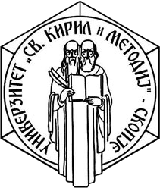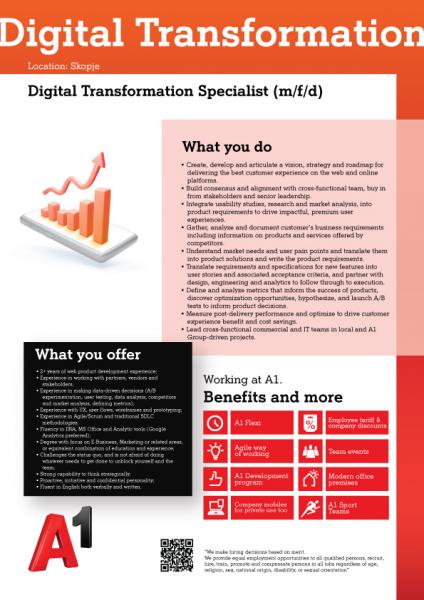| Professor |
Course |
Semester |
ECTS |
|
| 1 | assoc. prof. Ana Madevska Bogdanova, assoc. prof. Marija Mihova, assist. prof. Anastas Mishev, assist. prof. Boro Jakimovski |
Advanced algorithms |
IX |
6 |
| 2 | assist. prof. Boro Jakimovski, elect. assist. prof. Jasen Markovski | Formal methods | IX | 6 |
| 3 | prof. Vancho Kusakatov, prof. Margita Kon-Popovska, assist. prof. Vesna Dimitrievska Ristovska |
Optimization |
IX |
6 |
| 4 |
Elective course |
IX |
6 |
|
| 5 |
Elective course |
X |
6 |
|
| 6 | Elective course | X | 6 | |
| 7 | Elective course | X | 6 |
Security, cryptography and coding (4 + 1)
1. General Information
Postgraduate studies in Security, Cryptography and Coding aim at a top European education and training staff, which after graduation will be able to meet the needs of the industry.
- Name of the proposer: University "Ss. Cyril and Methodius University in Skopje, Faculty of Information Sciences and Computer Engineering - FINKI
- Name of the study program: academic second cycle studies in Security, cryptography and coding
- Scientific-research area: technical-technological sciences, natural-mathematical and sciences
- Field: Computer Science and Informatics, Informatics
- Area: Other ( Computer Security, Cryptography, and Coding)
- The value of postgraduate studies is 60 ECTS or 120 ECTS credits .
- Duration of studies: 2 or 4 semesters .
- One academic year consists of two semesters lasting 30 weeks (1 semester = 15 weeks).
- The first semester consists of subjects, while the second consists of subjects and the final project, ie. master thesis.
- Admission Requirements : Completed undergraduate studies in computer science or computer science with a minimum of 240 credits. For study directions that carry less than 240 credits, exams offered in the introductory layer are added.
- Introductory layer : Students who have earned less than 240 credits during their studies are offered a set of differential introductory courses. After their successful realization, the student acquires the right to continue with the second year of postgraduate studies.
- First semester: 3 Mandatory courses and 2 electives, one of which may be from the University list.
- Second semester: 1 Mandatory and 1 elective, which can be from the university list (only if in the first semester the subjects are selected at the Faculty level) and a final project of 18 ECTS
- 1 ECTS credit corresponds to 30 hours of total work engagement
- The number of contact hours is 4
- The academic title or degree obtained after graduation is
- Master in Information Science and Computer Engineering in the field of security, cryptography and coding
2. Studies
Table 3: List of Postgraduate Courses
| РБ | New Code / Subject | Semester | M / E | ECTS |
| 1 | BK-M-01 Advanced Information Security | IX | M | 6 |
| 2 | BK-M-02 Applied cryptography | IX | M | 6 |
| 3 | BK-M-03 Coding Theory | IX | M | 6 |
| 4 | Elective 2 | IX | E | 6 |
| 5 | Elective 2 | IX | E | 6 |
| 6 | BK-M-04 Computer Security | X | M | 6 |
| 7 | Elective course 3 | X | E | 6 |
| 8 | Master Thesis | X | M | 18 |
When choosing the courses, at least one elective course should be chosen from the offered elective courses in Table 4. The remaining elective courses can be selected from courses offered in all directions of the second cycle of studies at the Faculty of Information Sciences and Computer Engineering, and one of the electives can be chosen from the University list of courses of the second cycle of studies.
Table 4: Electives
< <
| РБ | New code / Subject | Semester | ECTS | Fund hours П | В |
|
| 1 | BK-E-01 Security for mobile and web applications | X | 6 | 30 30 | |
| 2 | BK-E-02 Biometric systems | IX | 6 | 30 30 | |
| 3 | BK-E-03 Provable security | X | 6 | 30 30 | |
| 4 | BK-E-04 Cryptanalysis | X | 6 | 30 30 | |
| 5 | BK-E-05 Cryptographic Engineering | IX | 6 | 30 30 | |
| 6 | BK-E-06 Cryptographic Protocols | X | 6 | 30 30 | |
| 7 | BK-E-07 Mathematical Logic for Computer Science | IX | 6 | 30 30 | |
| 8 | BK-E-08 Advanced Algebraic Structures | X | 6 | 30 30 | |
| 9 | BK-E-09 Advanced communication channel coding algorithms | X | 6 | 30 30 | |
| 10 | BK-E-10 Applied Information Theory | IX | 6 | 30 30 | |
| 11 | BK-E-11 Stochastic Processes | IX | 6 | 30 30 | |
| 12 | BK-E-12 Change and Risk Management | IX | 6 | 30 30 | |
| Selection from University List of Free Courses | 6 | 30 30 | |||
The student can choose a subject from the list of offered elective courses from all study programs of the second cycle of studies. The list of offered electives can be found on this link .







